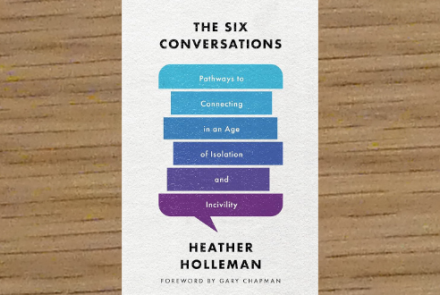Review: "Christ and the Culture Wars” by Ben Chang
Ben Chang’s latest book is an astute and wisely prophetic look at the evolving social movements competing with traditional Christian positions today. When I began reading the book, I was expecting an overview of the conflicts themselves, alongside proposals for how to mitigate the damages done by them, according to some enlightened scheme. What I found was a book that is roughly equal parts backstory and treatment plan. The backstory is a modern history of four loosely interrelated social movements: feminism, racial justice, gay pride and trans(sexual) rights. Though I baulked a bit at having to slog through 100 pages of history before getting to “the good stuff,” I was pleasantly surprised by the objectivity of Ben’s discussion and alarmed at my own deficient understanding of these movements. Looking back, I'm grateful for the backstory, as I believe it will help me be a more effective Christian witness.
Once I’d made my way humbly through the first hundred pages of the book, I delved into the second half, where Ben pulls things together in what he calls “The Grand Narrative of Identity Politics.” As he sees it, hangers-on of the four movements have good reason to feel disenfranchised and disenchanted in the ways they do. As a same-sex attracted man, who has experienced the effects of homophobia at various times in my life, I was in agreement on this point. That said, disenfranchisement in the context of Christian mission gave the topic fresh poignancy and urgency in my way of thinking.
Identity politics, Ben tells us, are not a new thing, but social media has fertilised the field for bringing identity politics to greater public awareness and acceptance. He writes:
“With social media ... we can now create any identity profile we want for ourselves, and broadcast to the world any version of our reality that our imaginations can conjure up” (p. 94).
The problem, as he sees it, is that while modern culture seeks to reinvent itself and distance itself from Christian tradition, it perversely strives also to hold on to gains from that same tradition. For example, the principle of “love thy neighbour,” which can be found (in some form) at the heart of many countercultural ideas. At the same time, identity politics has infiltrated the Church. This, Ben argues, is “not necessarily a bad thing,” since:
“Where identity politics shines a light on church practices that are oppressive, discriminatory, or in any other way sinful, we should be grateful for the wake-up call and committed to repentance” (p. 131).
I conclude from his arguments that the culture wars are less clear-cut than we think; indeed, they are fought between new ideas rooted in uncomfortable historical truths, and old ideas that are too appealing to give up.
We might win the culture wars, the author informs us, by harnessing “the power of the narrative” and writing a “better story.” Countercultural movements are built on stories and lived experiences and are powerful for that reason. It makes sense, therefore, that the gospel, being the greatest story of all, should also be the most compelling story; we must endeavour to tell it better. By “telling a better story,” we position the gospel to outshine countercultural messages. In doing so, we need not be-should not be-limited to words, but must aspire also to “live redemptively,” which Ben defines, quoting N.T. Wright, as:
“…living as those who have experienced that redeeming power of God already, and whose lives-individually and corporate-are signposts to the ultimate liberation of all creation and humanity from every form of oppression and slavery” (p. 187).
Ultimately this strategy for reclaiming the upper hand in the culture wars is a tall order without easy answers. I admit I finished the book feeling somewhat frustrated by the lack of specific, operational alternatives to the habitual lines of defence. But I believe as I continue to ponder the “power of narrative” related in this book, I will have a few good ideas in time.
This article was originally published in the Spring 2024 edition of the TFT magazine, Ascend. Click the button below to download your copy.
Download the Spring 2024 edition of Ascend






